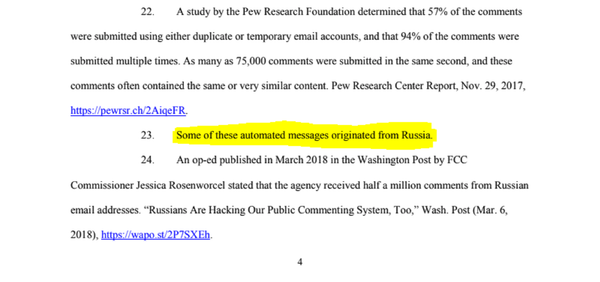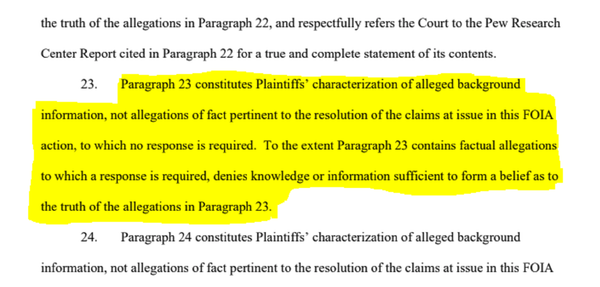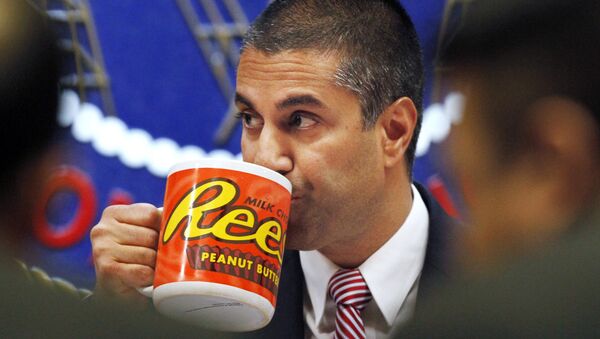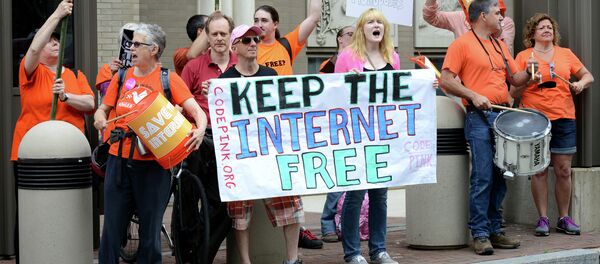In a Monday memorandum, Pai cited "the half-million comments submitted from Russian email addresses and the nearly eight million comments filed by email addresses from email domains associated with FakeMailGenerator.com."
According to Pai, those comments supported net neutrality.
That claim is contradicted by the very same commision Pai heads, however. In a recent court filing, an FCC lawyer said that they are not convinced that any Russian bots, citizens or government officials meddled in the process.
That analysis was put forward in response to a lawsuit over the FCC's rejection of a Freedom of Information Act request by the New York Times and Buzzfeed News which the news organizations say would "shed light on the extent to which Russian nationals and agents of the Russian government have interfered with the agency notice-and-comment process about a topic of extensive public interest."
"Release of these records will help broaden the public's understanding of the scope of Russian interference in the American democratic system," they said in a complaint in September.
The FCC said it had no proof that comments originated in Russia, Gizmodo journalist Dell Cameron reported.


Some 22 million comments were left during the process, but a Stanford University study in October revealed that a mere 800,000 (about 3.6 percent) were "unique," meaning that they were not created by a form or an automated script. Of those almost certainly genuine comments, only 0.3 percent supported a repeal of net neutrality. Another study by Pew Research Center found that 6 percent of comments were unique.
In November 2017, data scientist Jeff Kao suggested the large number of fake comments was not itself extraordinary — even if it was concerning for their more-or-less unified message.
Kao sorted through all 22 million messages and reached out to 450,000 people whose names were attached to comments. About 14,000 responded. A startling 88 percent of respondents who said they didn't send in a comment had their names attached to pro-repeal letters. For those in favor of keeping net neutrality intact, the percentage of people whose emails were fraudulently used for making a public comment was "never more than 5 percent."
"To me, the really strange part is that this kind of email identity theft happened only on one side of the debate," he told Forbes in November 2017.
"I imagine it's not hard to find databases of collected Americans' email addresses — you can buy email lists for various purposes," he said. "And while it's hard to speculate about who created [the] bots involved, it's really not that hard to create a bot that can spam the comments page API. I'm sure I could code up a bot in an hour or two that would spam out comments as well."
Kao also found that 17 million comments were duplicates or close parallels, but those may have been from legitimate public mailing campaigns. What he identified as illegitimate were 1.3 million comments that were superficially unique but used a system to substitute word choices contained in the same message over and over again, producing distinct results "like mad-libs, except for [political] astroturf," he said.
Meanwhile, an August study by Emprata, which was retained to conduct the study by a telecommunications lobby group called Broadband for America, supported Pai's figures on Russian email addresses and anti-repeal comments originating from FakeMailGenerator.com.
Broadband for America was hugely supportive of Pai's efforts to repeal net neutrality rules.
The lobby group is also among a group of others subpoenaed by the New York Attorney General's Office as part of its investigation into the "as many as 9.53 million" comments issued with stolen identities.
The New York attorney general's probe into bots spamming the comments section has already resulted in 14 subpoenas of lobbyists with a financial interest in eliminating net neutrality, the New York Times and Wall Street Journal both reported in October.
Another group subpoenaed by New York authorities is Media Bridge, which boasted openly about how one of its clients single-handedly submitted 800,000 comments. To put the efforts to undermine the process in perspective, that's the same exact number of comments that were "unique," according to the Stanford study.
For a glimpse inside how laws and rules actually get made, Broadband for America's large network of connections to telecom firms and lobbyists serves as a microcosm.
Broadband for America is a telecom nonprofit advocacy group whose funding comes from the National Cable and Telecom Association, AT&T, CenturyLink, Comcast, The Wireless Association, Cox, The Internet & Television Association, the Telecommunications Industry Association and USTelecom-The Broadband Association.
Firms have many avenues to influence rules and laws. They can contribute to candidates directly, replenish party coffers and dump funds into lobbying firms (which go on to spend all their time talking to lawmakers' staffs on Capitol Hill). In order to hide their activities, companies often pay one lobbyist, who then sends those funds into a political action committee (PAC) to carry out their tasks.
According to The Center for Responsive Politics, almost every telecom company has put its money where its mouth is in its attempts to repeal net neutrality. In 2015, AT&T spent $16.4 million on 101 lobbyists, making it the ninth largest spender in Washington; Verizon dropped $10.1 million on lobbying; and Comcast poured in another $14.3 million.
What's more is that telecom stocks are extremely popular in the investment portfolios of a large number of members of Congress. Some 47 lawmakers owned AT&T stock as of 2015, making it one of the most widely-owned stocks on Capitol Hill. Another 31 members of Congress owned shares in Comcast. Verizon, for its part, is owned by at least 50 members of Congress, making it the 10th most popular investment for the people who write the laws of the United States, according to the transparency watchdog.




